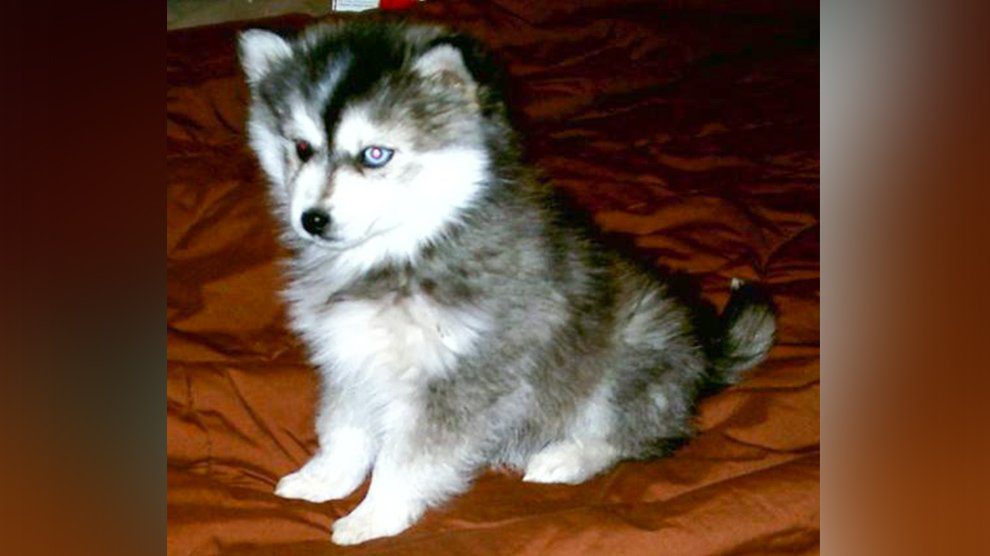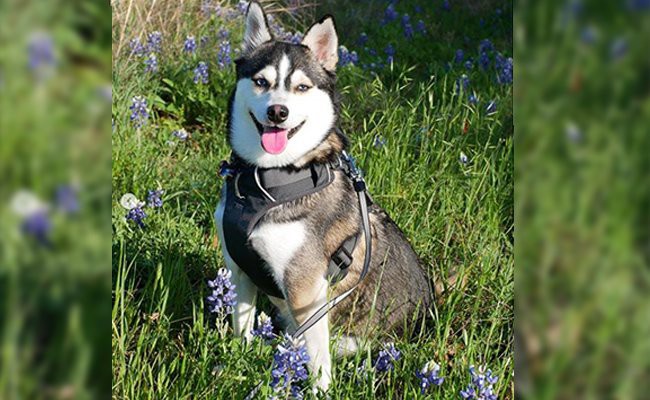Dog Pregnancy Calculator And Timeline
Who would say no to a warm greeting from their pet as soon as they reach home? If you already own a pet, you would understand the joy of having a pet eagerly waiting for you at home.
Each pet has its own comfort zone and we must know their exact requirements in order to keep them active and enthusiastic all the time. Are you a mini husky lover? If your reply is in the affirmative, then definitely this post is just meant for you!
Fostering a dog can be tedious if you do not know anything about the breed’s nature, temperament and food habits. Get to know this mini bundle of joy better and take necessary steps to give him a happy and healthy environment.
Miniature Husky is simply a normal Siberian husky that is bred in order to get an outcome that’s smaller than the normal size. They are strikingly similar to the parent breed except for its size.
Miniature Husky Size & Weight
The size and weight of a Miniature Husky may vary drastically based on the breeder’s skill and reputation.
Size – Huskies that are between the range of 12 and 16 inches can be regarded as Miniature Huskies. The point is they must be half the size of an original Siberian husky.
Weight – The weight is different for males and females. The male husky could weigh about 18 to 35 pounds whereas a female husky could be anywhere between 15 to 30 pounds
Except for the size and weight, mini huskies are very similar to the Siberian Huskies (in terms of behaviour, temperament, food habits and lifespan).
Miniature Husky Life Span
The average life expectancy of a miniature husky could be between 12 and 14 years. Mixed breeds can sometimes live longer when well taken care of.
Miniature Husky Breed Characteristics
- Origin: United States
- Size: Small
- Dog Breed Group: Working Group
- Purebred: Yes, a smaller version of the Siberian Husky
- Lifespan: 12-14 Years
- Height: 12-16 inches (30-41 cm)
- Weight: 15-30 pounds (7-14 kg)
- Coat Appearance: Dense, double-coated, medium length
- Coat Colors: Black, gray, red, and white, often with distinctive Husky markings
- Temperament: Playful, energetic, friendly, loyal, alert
- Good With Children: Yes, but as with all dogs, interactions should be supervised
- Intelligence Level: High
- Good With Pets: Yes, especially when raised with them
- Hypoallergenic: No
- Grooming: Moderate to high, sheds heavily twice a year
- Barking: Moderate, can be vocal like the standard Siberian Husky
- Suitable For Apartments: Yes, if sufficiently exercised
- Need For Exercise: High, requires vigorous daily exercise
- Easy To Train: Moderately, intelligent but can be independent and stubborn
- Good For First Time Owners: Yes, but better suited for those who can handle an active breed
- Health Issues: Similar to Siberian Huskies; can include hip dysplasia, eye problems (like cataracts and progressive retinal atrophy)
- Litter Size: 4-6 puppies
- Average Price: $600 to $1,500 USD
How To Train A Miniature Husky?
There has always been a heavy debate on the right age to train a dog
Well I would say, “The earlier, the better!” Miniature Husky can be trained to start at the age of 8 weeks
Their great memory and attentiveness help them learn fast.
A few general training tips:
- Be Consistent – Short training sessions would be enough but you need to teach them daily without fail. You can achieve results only with consistency.
- Set up a feeding Schedule – Give them food at the same time every day; once the mini husky gets comfortable with the timing, it would follow the schedule without external help.
- Give them treats – This rule applies to all dogs in common; present them with a toy or a treat when they master a habit and answer your commands with much ease.
The training process must suit the pet’s pace and comfort; do not push your pet to train when it’s not willing to. Mini Huskies need a lot of exercises to include the training process as a daily habit; just like a morning walk.
Miniature Husky Temperament
Mini Huskies prove to be great canine companions and are known for their loyal and friendly personality.
Surprisingly mini huskies lack aggression and cannot be trusted as guard dogs.
They are quite playful and up to some mischief most of the time.
The following characteristics define a Miniature Husky;
Playful and Energetic – They are always in “play-all-the-time” mode. It shouldn’t be a shock if you find your sofa seats torn into pieces. But no worries, huskies can be trained to behave well.
Gentle Personality – Mini Huskies are super gentle and friendly with humans and this very reason makes them the ideal company for kids.
Not Aggressive – They tend to maintain cool most of the time and do not bark too much. Well, Huskies usually howl like their ‘wolfie-cousins’ so that mustn’t disturb you when you see your pet howling instead of barking.
Remarkably adaptable – They can adapt to all kinds of weather conditions; they can survive even the hottest of all climates provided they are kept hydrated.
Feeding A Miniature Husky
2-9 months is the major phase of dog growth; hence your Miniature Husky must be given the vital nutrients necessary for its healthy growth.
Luckily, Mini Huskies are very conscious about their food intake so overfeeding wouldn’t be a matter of concern.
First few months – The pup must be given food at least 3 times a day. You needn’t worry about the quantity at first. Gradually you will learn how much food your pet requires for each meal.
Adult – You can split the meal frequency to 2 times a day when they are older. Make sure that they eat 2 hours before exercising and 30 minutes after exercising for proper digestion.
These little ones need to be given a lot of proteins when they are young; this is the stage when muscles start developing. For good immunity and health, choose the best food brand for your pet.
Recommended Read: Best Food For Corgis, Feeding Guide For Husky And Husky Mix Dogs
Interesting Facts About Miniature Husky
- They have a thick double layered coat that helps it keep warm in the coldest of all weathers.
- Miniature Husky howls can be heard as far as 10 miles. That a pretty huge distance!
- They can have the best escape plan if not attended. Leave them alone for an hour and watch them conjure ways to escape your yard.
- There are instances when Mini Huskies change eye colors. Sounds Vampirish, right? Huskies born with blue eyes can change color after few weeks.
- They have a varied range of eye colors, the most prominent ones are Brown and icy blue.
- Wolfs are their ancestors but Miniature Huskies have completely different behaviours except for the howling.
- They are great diggers and can scoop out a hole in the toughest icy grounds.
- A pack of huskies was once known to have saved the entire Nome in Alaska by racing through a snowstorm to deliver medicines to cure Diphtheria. Pretty Loyal Breed!
Miniature Husky Health Problems
They are usually a healthy breed but sometimes may inherit diseases like glaucoma from their parent breeds.
Here’s a list of major health issues that the mini huskies tend to suffer from.
Hip Dysplasia – This is an abnormal formation of the hip socket and may lead to painful lameness in the bet if left untreated.
Genetic Eye Disorders – Miniature Husky can sometimes suffer from cataracts and other eye defects that it may have inherited from its owner.
Uveodermatologic Syndrome – It is an autoimmune disease that involves the melanocytes in the eye and skin destroyed; painful red eyes in the pet should be immediately treated because this disease can result in irreversible blindness
Follicular Dysplasia – This condition could result is abnormal hair loss or hair growth in the pet. To prevent this, use shampoos and soaps prescribed by the doctor. Frequently changing the brand can have an allergic effect on the pet’s skin.
Statistics show that around 10% of the mini Huskies tend to suffer from a cataract that is genetically inherited; hence confirm with the breeder before you buy the pet.
Miniature Husky Price
The price of the miniature husky depends on its quality of health; the breeding program also plays an important role in deciding the price of the pet.
The price range could fall within $600 to $2000. They are limitedly bred; hence you may sometimes have to wait longer until you receive the pet.
Moreover, once you have placed the order, you would be charged the current price of the dog breed, unless you are great friends with the breeder.
Never get flattered by heavy promotions displayed by the breeder; do your homework before you bring the Miniature Husky home.
Kudos to those who already own a Mini Husky! You have all the essential tips in hands; so its time you kick-start your training program.
Miniature Husky Breeders
Finding the right Miniature Husky breeder is quite vital if you want to buy a pet that is healthy, and void of genetic disorders.
Here are a few general suggestions you could follow to make a responsible pet-purchase;
- Compare the price and features explained by different breeders. It’s your choice to bring home an additional family member to take your time to do your little bit of research.
- Check the temperament of the pup yourself; do not go by what the breeders describe to you.
- The pup must be delivered to you after a vet-check is done; Reputed breeders would happily allow you to do that.
- A good breeder will always educate you about the pet and guide you with tips to take care of it.
- Do not buy from an owner who does not have sufficient knowledge of the pet.
- A legit breeder wouldn’t allow you to buy the pup until its 7 to 8 weeks old.
- Prior to selling it to you, he should have spent time with the pet and laid the basic foundation for training.




















